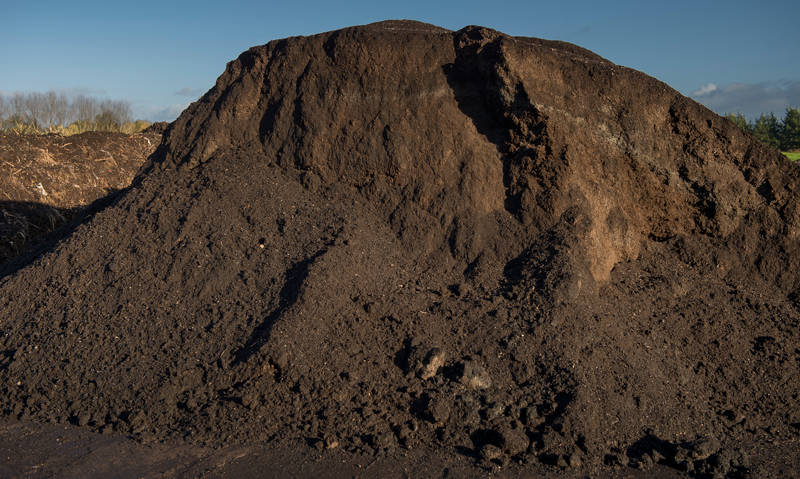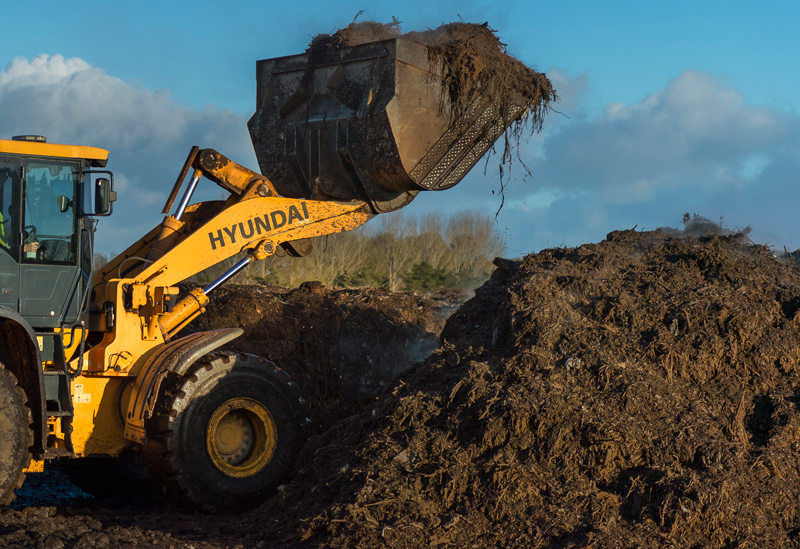Why Use Compost?
Applying a good quality compost to fruit and field crops has been shown to increase crop yields and soil carbon levels.
Compost improves soils in three main ways, supporting crops to be stronger, more resilient and higher yielding.
The Benefits
Stability
Envirofert Quality Compost is a reliably matured compost. Plant growth-rate tests show that the compost supports faster plant growth-rates.
Safety
Envirofert Compost has low ammonium Nitrogen levels, which pose no such risk to plants.
Less Pollution Risk
Envirofert Compost reduces Nitrogen leaching into the ground water or run-off after rain.
Steady Nutrient Release
Envirofert Compost releases nutrients only when conditions are right for plant growth.
Microbial Diversity
Envirofert compost tends to contain a wider diversity of bacterial and fungal families.

Quality Assurance
Envirofert’s primary composting process is constantly monitored to ensure the composting temperatures and oxygen levels are optimal.
Lab tests taken regularly ensure Envirofert compost is fully matured, has low levels of heavy metals, and meets all the criteria for NZ Compost Standard, NZS4454.
Envirofert compost is AsureQuality Organic Certified.
Soil Benefits
-
Compost improves soil structure and soil porosity, creating a better plant root environment.
-
Compost improves water infiltration, permeability, reducing erosion and runoff.
-
Compost improves the water holding capacity of light soils. An Organic Matter lift of 1% increases the water holding capacity by 160 cubic metres per Hectare.
The Biological Benefits
-
Organic matter within compost supplies humus which aids soil aggregation, increases nutrients availability for plant uptake, can bind and degrade certain pollutants.
-
Compost has a wide range of beneficial micro-organisms that help supress soil borne diseases.
Fertility Benefits
-
Compost supplies macro and micro nutrients in a slow release, plant available form.
-
A crop’s ability to respond to available Nitrogen (from soil, fertiliser and compost reserves) increases where compost has been applied.
-
Compost provides other key nutrients such as Magnesium and Calcium.
-
Compost improves the ability of soils to hold key nutrients and reducing nutrient loss from leaching, aids soils to retain nutrients longer, resulting in better plant uptake.
-
Compost helps buffer soil pH.
Plant Benefits
-
Plants are more resilient
-
Plants are less prone to soil borne diseases
-
Plants withstand drought conditions
-
Plants are higher yielding by up to 30%
The Composting Process
A primary thermophilic aerobic process occurs with temperatures ranging from 55 – 75 ºC. This initial heating of the composting process destroys weed seeds and reduces pathogen loads.
This is followed by secondary maturation, where temperatures cool, allowing the product to stabilise and mature.
The compost is inoculated with beneficial organisms during the maturation phase.

